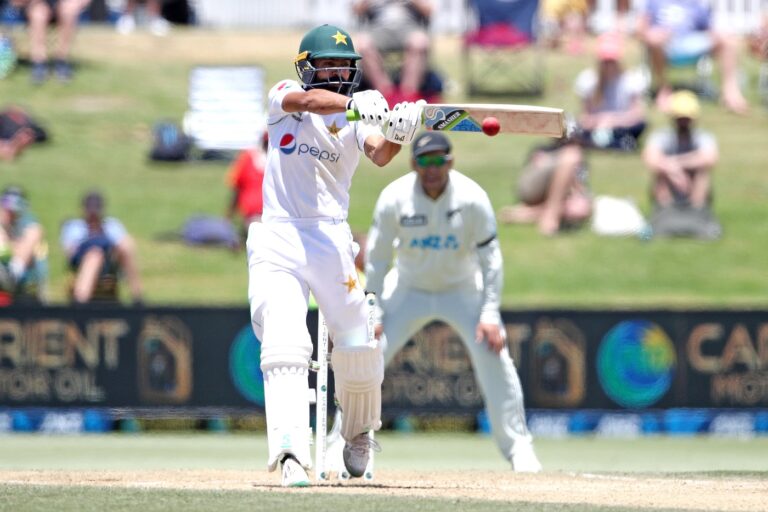Exploring the Importance of Goal Setting in Cricket Coaching
sky.247, diamondexch9 com, tiger exchange vip:Exploring the Importance of Goal Setting in Cricket Coaching
As a cricket coach, it is crucial to understand the significance of goal setting in guiding your players towards success. Setting clear and achievable goals not only motivates players but also provides them with a roadmap to identify areas for improvement and track their progress. In this article, we will delve into the importance of goal setting in cricket coaching and how it can enhance the overall performance of your team.
Setting the Stage for Success
Before diving into the specifics of goal setting in cricket coaching, it is important to first establish why goals are essential in any sporting endeavor. Goals serve as a beacon of light, guiding players towards a common purpose and driving them to push beyond their limits. Without clear goals in place, players may lack direction and motivation, leading to a lackluster performance on the field.
Setting tangible and measurable goals allows players to monitor their progress, celebrate small victories, and stay focused on the ultimate prize. Whether it is improving batting technique, enhancing fielding skills, or boosting overall fitness levels, goals provide a roadmap for players to follow and ensure that they are constantly striving for excellence.
Furthermore, goal setting fosters a sense of accountability among players, as they are responsible for their own progress and development. By setting individual and team goals, players are encouraged to take ownership of their performance and work collaboratively towards a shared objective.
The Role of Goal Setting in Cricket Coaching
In the fast-paced and competitive world of cricket, goal setting plays a pivotal role in shaping the success of a team. By establishing clear objectives and targets, coaches can create a culture of accountability, motivation, and continuous improvement within their team.
When it comes to cricket coaching, goal setting should be a collaborative process that involves both the coach and the players. By engaging players in the goal-setting process, coaches can gain valuable insights into their strengths, weaknesses, and aspirations, allowing them to tailor training sessions and strategies to meet the unique needs of each individual.
Moreover, goal setting in cricket coaching should be SMART specific, measurable, achievable, relevant, and time-bound. Setting vague or unrealistic goals can demotivate players and hinder their progress. By ensuring that goals are SMART, coaches can provide players with a clear framework for success and empower them to reach their full potential.
In addition, goal setting can help coaches identify areas for improvement within their team and develop targeted training programs to address these gaps. By setting specific goals around areas such as batting averages, bowling economy rates, or fielding efficiency, coaches can track progress over time and make informed decisions to drive performance improvements.
Overall, goal setting in cricket coaching is a powerful tool that can unlock the full potential of a team and drive them towards success on the field.
The Impact of Goal Setting on Player Performance
The importance of goal setting in cricket coaching cannot be overstated when it comes to driving player performance. By setting clear and achievable goals, coaches can inspire players to push beyond their comfort zones, improve their skills, and ultimately elevate their performance on the field.
When players have a clear understanding of what is expected of them and how their performance will be measured, they are more likely to stay focused and motivated throughout training sessions and matches. Setting challenging yet attainable goals can ignite a competitive spirit within players and spur them to give their best effort every time they step onto the field.
Moreover, goal setting can help players develop a growth mindset, where they view challenges as opportunities for growth and learning. By setting incremental goals that build upon each other, players can see tangible progress over time and gain confidence in their abilities. This, in turn, can lead to improved self-belief, resilience, and mental toughness qualities that are essential for success in the high-pressure environment of cricket.
Furthermore, goal setting can be a powerful tool for enhancing player engagement and commitment. When players are actively involved in the goal-setting process and have a say in defining their objectives, they feel a sense of ownership and responsibility towards achieving them. This intrinsic motivation can drive players to go above and beyond in their training and preparation, resulting in improved performance on the field.
Overall, goal setting in cricket coaching has a profound impact on player performance by providing direction, motivation, and a sense of purpose that can drive players to achieve their full potential.
Best Practices for Goal Setting in Cricket Coaching
To maximize the effectiveness of goal setting in cricket coaching, coaches should follow a few best practices to ensure that goals are clear, relevant, and achievable. Here are some tips for setting goals that will inspire and motivate your players:
1. Involve players in the goal-setting process: Encourage open communication and collaboration with your players to gain a better understanding of their aspirations, strengths, and areas for improvement.
2. Set SMART goals: Ensure that goals are specific, measurable, achievable, relevant, and time-bound to provide a clear framework for success.
3. Focus on both individual and team goals: Balance individual development with team objectives to create a cohesive and high-performing unit.
4. Provide feedback and support: Offer constructive feedback and guidance to help players stay on track and overcome obstacles on their way to achieving their goals.
5. Celebrate achievements: Recognize and celebrate small victories along the way to keep players motivated and engaged.
By following these best practices, coaches can create a goal-setting framework that drives player performance and enhances team success on the cricket field.
FAQs
Q: How often should goals be reviewed and updated in cricket coaching?
A: Goals should be reviewed and updated regularly to ensure that they remain relevant and aligned with the team’s objectives. Coaches can conduct goal-setting sessions at the beginning of each season, mid-season, and at key milestones to track progress and make any necessary adjustments.
Q: How can coaches motivate players to achieve their goals?
A: Coaches can motivate players to achieve their goals by providing positive reinforcement, offering regular feedback, and creating a supportive and encouraging environment. Celebrating achievements, setting challenging yet attainable goals, and fostering a growth mindset can also help players stay motivated and engaged.
Q: What role do long-term goals play in cricket coaching?
A: Long-term goals are essential in cricket coaching as they provide players with a sense of purpose and direction over a sustained period. By setting ambitious yet achievable long-term goals, coaches can inspire players to push beyond their limits, develop their skills, and strive for excellence throughout their cricketing journey.
In conclusion, goal setting in cricket coaching is a powerful tool that can drive player performance, enhance team cohesion, and lead to success on the field. By setting clear, SMART goals, coaches can provide players with a roadmap for success and empower them to achieve their full potential. By following best practices and involving players in the goal-setting process, coaches can create a culture of accountability, motivation, and continuous improvement that will help their team reach new heights in the world of cricket.







